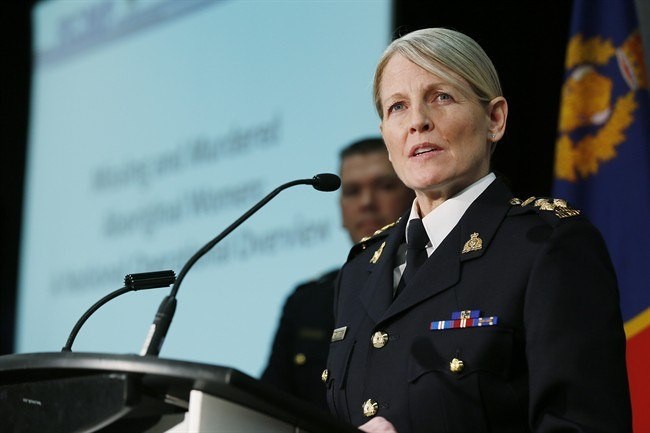THUNDER BAY – First Nations leaders say the latest report detailing the number of missing and murdered Aboriginal women show a federal inquiry is desperately needed.
Between 1980 and 2012 there were 1,181 cases of murdered and missing Aboriginal women in Canada, the RCMP disclosed when they released the “Missing and Murdered Aboriginal Women: A National Operational Overview” report in Winnipeg on Friday.
That effectively doubles the number of cases over the past 30 years from what was previously believed at this time one year ago.
The RCMP says it is time to develop strategies overseeing prevention, intervention and enforcement to curb the disturbing trend.
"We still have a lot of unanswered questions ... but I think this research project, this operational overview, is an excellent first step in that direction from a policing community," Janice Armstrong, the RCMP's deputy commissioner for contract and aboriginal policing, said at the news conference in Winnipeg.
"It's my hope ... that it will contribute to that larger Canadian conversation."
The 22-page report is the most comprehensive study conducted on the issue, with the national police force consulting nearly 300 other law enforcement agencies across the country.
Nishnawbe Aski Nation deputy grand chief Alvin Fiddler said the findings, which come on the heels of a report released by United Nations special rapporteur on the rights of indigenous people James Anaya that warns of a state of crisis, will make it harder for the federal government to continue resisting calls for an inquiry.
“I think the next logical step would be for the government to call for an inquiry to find out how this all happened,” Fiddler said. “I think it’s getting more and more difficult for this government to not have an inquiry.”
The report found there were 1,017 murdered Aboriginal women during the more than 30 year time period, representing 16 per cent of female homicides.
The 2011 National Household Survey found that Aboriginal women represented 4.3 per cent of the national female total.
In Ontario there were 114 cases of murdered Aboriginal women from 1980-2012, which represents six per cent of all female murder cases in the province during that time frame. Aboriginal women compose 2.4 per cent of Ontario’s female population.
Even though he admits the sheer numbers are staggering, Fiddler wants to keep focus on the human nature of the women and the families left behind.
“What’s important for all of us to realize is the numbers the report outlined aren’t just numbers,” Fiddler said. “We need to always be mindful they represent human lives and they represent families that are still trying to find some answers.”
The RCMP says they have 120 unsolved homicide cases involving Aboriginal women, as well as another 105 cases of missing Aboriginal women are missing under suspicious circumstances.
Ontario Native Women’s Association president Dr. Dawn Harvard said the RCMP report was able to discover cases women’s organizations across the country were not able to find when trying to determine the number.
The study did find the solve rate of murder cases for Aboriginal women mirrors that of non-Aboriginal women, with close to 90 per cent of cases for each being cleared.
-- With files from The Canadian Press
